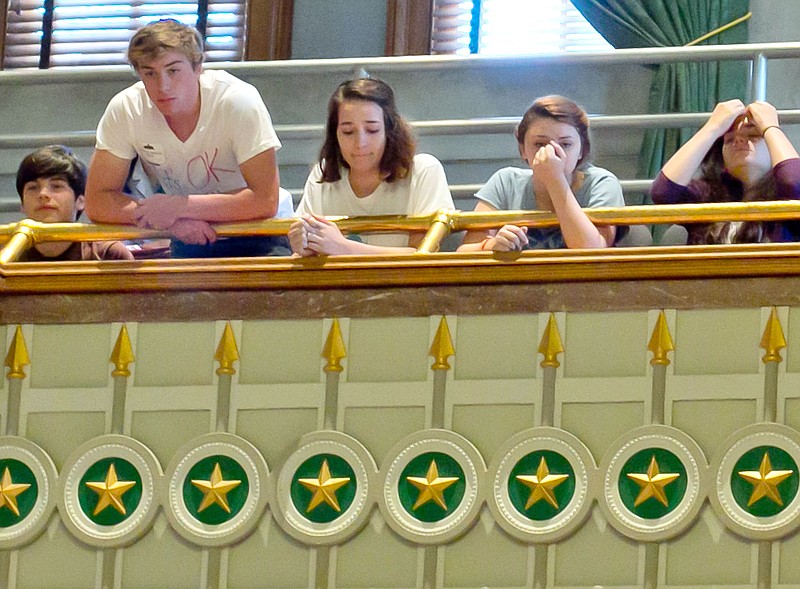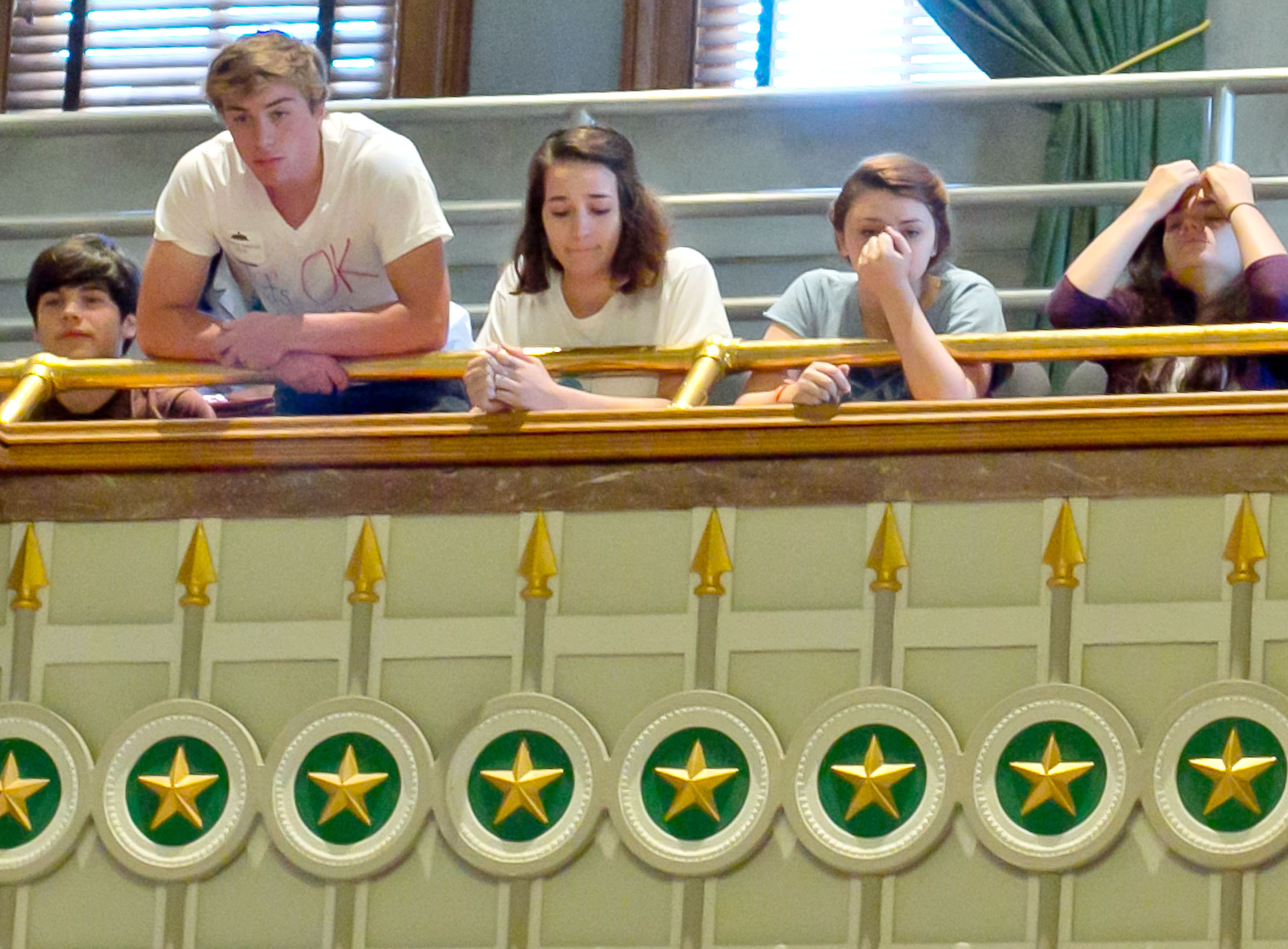NASHVILLE - Tennessee's $30.78 billion annual spending plan sailed through the House on a 96-0 vote Friday while senators were expected to act on the measure later in the evening.
The House version includes an estimated $129.5 million in federal funds to restore extended unemployment benefits for another 20 weeks to thousands of jobless Tennesseans who exhausted or soon will exhaust their 79 weeks of state and federal emergency benefits.
House majority Republicans as well as House Democrats expected Senate Republicans to go along with the unemployment extension after Gov. Bill Haslam intervened to broker a deal on the extension earlier in the day.
Republican Lt. Gov. Ron Ramsey, the Senate speaker, had previously opposed extending the benefits, saying that after 79 weeks "you have to draw the line in the sand and say: 'This is it.'"
But after Haslam and administration's efforts, the lieutenant governor said, "I think you'll see that pass the Senate and the House."
Friday night, the Senate Finance Committee met and on a 7-2 vote with one lawmaker abstaining, approved a bill letting the unemployment extension proceed. Voting no was Sen. Bo Watson, R-Hixson. He later said he was looking at a way of funding an estimated $3.1 million to cover the costs of extending benefits through December to state and local government employees who have been laid off.
The federal funds cover private sector employees who have been laid off.
About 15,000 would be affected, according to a legislative analysis. Previous estimates had put the figure at as many as 28,000. Many lost their extended 20 weeks of benefits after the Haslam administration opted not to proceed with changing a state law to conform with a federal extension of benefits.
Other budget provisions would provide a 1.6 percent pay raise to state employees, their first in four years.
The new budget, which takes effect July 1, contains about $1.23 billion or 3.9 percent less than the current budget. Reductions are because of fewer federal stimulus dollars.
It includes a $449 million hospital "assessment" fee that the Tennessee Hospital Association sought. That will be used by the state to draw an additional $870 million in federal Medicaid matching funds for TennCare to offset huge cuts.
Late Friday night, Tennessee lawmakers rushed to complete their annual session although many expected they would have to finish up either today or Monday.
In other action:
• Republican Haslam's bill to cap awards in medical malpractice and other personal injury cases is headed to him for his signature after the House reluctantly agreed to a Senate change in the legislation in a 68-27 vote.
The GOP-controlled House originally sought to lift a new $750,000 cap on noneconomic damages if the defendant caused the injury while committing a felony. But the version approved by Senate majority Republicans eliminates the cap only if the defendant intended to cause the injury.
Rep. Vance Dennis, R-Savannah, the House bill's sponsor, said while he disagrees with the Senate version, it was important to get the bill to Haslam. He said senators have agreed to work with him on separate legislation to restore the House version, although that will have to wait until next year
That didn't satisfy Rep. Eddie Bass, D-Prospect, a former sheriff, who observed, "just so everyone will know, we're giving felons the same protection as anyone else" in accepting the Senate version.
• Senators gave final approval on a 27-1 vote on legislation sought by Haslam that makes major changes in the state's lottery-funded Hope college scholarship program. One change breaks new ground by allowing use of the scholarship for attending summer school. The other limits the scholarships in most case to no more than 120 hours of credit. Senate Minority Leader Jim Kyle, D-Memphis, warned that because public university students on average graduate with 133 hours of credit, at least some students can be expected to exhaust their scholarships prior to graduation.
• Winning approval in the House was another major Haslam initiative, eliminating a 90-school cap on charter schools and expanding the types of students eligible to include higher-income, higher-performing students. The bill flew through the House on a 72-18 vote. It was scheduled to come up later Friday night in the Senate for final action.
• Tennessee voters must show photo identification to poll officials before being allowed to cast ballots under a GOP-backed bill headed to the governor. Senators voted 18-14, agreeing to changes made by the House. Among other things, student college IDs won't be accepted. People living in nursing or group homes would be exempt. Others would be allowed to cast provisional ballots.
Republicans said the bill is necessary to prevent fraud. Democrats contend it could discourage elderly and poorer voters who do not have ready access or funds to pay for driver's licenses. It now goes to Haslam for his review.
• The full Senate voted 28-2 to send Haslam legislation calling for Tennessee employers to use the "E-Verify" computerized system to help ensure that the people they hire are in the U.S. legally.
But the bill also allows businesses to simply obtain a copy of a new employee's driver's license. The bill had been fiercely opposed by the state's business organizations until the driver license option was added. The House sponsor, Rep. Joe Carr, R-Lancasas, said the bill has not been watered down. He said the bill provides a "safe harbor" for employers who use E-Verify if the worker is later found to be in the country illegally. But no such protection is in place for employers who take driver's licenses, Carr said.

